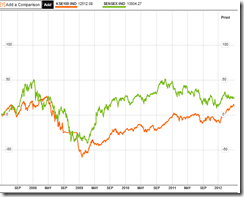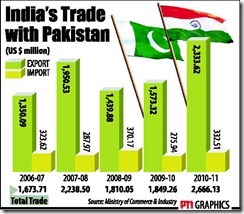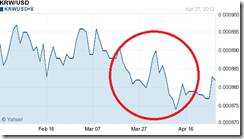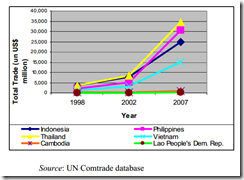All nations seem to assume that a public energy policy will bring their citizens and industries cheaper and more stable energy. The opposite, of course, always happens. This is just the latest example of government meddling in a key sector of the economy. Germany’s government has chosen to close its nuclear plants. It subsidizes windmills. Germany’s green movement is very powerful and exerts a negative influence on Germany’s ability to exploit domestic energy sources through new techniques, such as fracking. As a result, energy prices in Germany are approximately double those of the US and it is dependent upon supplies from political dictatorships like Russia.In a free market for energy firms would rush to fill energy orders when a rival supplier appeared to be unreliable. In a free market for energy a Russian cut off of natural gas would result in a permanent loss of customers to rival suppliers. The current situation is made worse by US law that prohibits exports of natural gas. In an unhampered market, US firms would be free to sell gas to the highest bidder and there is little doubt that Europe would negotiate alternative sources with a threatened Russian supply cutoff. A Russian embargo would permanently damage its natural gas industry by proving it to be an unreliable supplier, costing it the loss of business for many, many years.Unfortunately, all nations use the economic output of their citizens and firms as weapons of national policy, even in the absence of war. The result is the opposite of their intentions, which should surprise no one.
The art of economics consists in looking not merely at the immediate hut at the longer effects of any act or policy; it consists in tracing the consequences of that policy not merely for one group but for all groups—Henry Hazlitt
Saturday, March 29, 2014
Quote of the Day: Economic output as weapons of national policy
Thursday, November 28, 2013
Senkaku Islands Dispute: The Risks from Political Brinkmanship
Days after China asserted greater military control over a swath of the East China Sea to bolster claims to a cluster of disputed islands, the US defied the move Tuesday as it flew two B-52 bombers through the area.China, however, insisted Wednesday it has the capacity to enforce its controversial newly declared air zone over islands disputed with Japan, despite Beijing’s reluctance to intervene after American B-52 bombers flouted its rules.The US said what it described as a training mission was not flown to respond to China’s latest military maneuver, yet the dramatic flights made clear that the US will not recognize the new territorial claims that Beijing laid out over the weekend.
Monday, April 08, 2013
The Phisix Amidst the Korean Peninsula Stand-Off
And in spite of the North Korea’s vaunted war machinery, wherein much of the misallocation of the nation’s resources had been directed, the North Korean army is in a state of dilapidation and obsolescence: they seem ostensibly good for parades and for taunting, but not for real combat…Thus, based on socio- political-economic and military calculations, the North Koreans are unlikely to pursue a path of war, because the odds are greatly against them. And their political leadership is aware of this.
During the 1950-53 Korean War, US B-29 heavy bombers literally flattened North Korea. That’s why North Korea reacted so furiously when US B-52 heavy bombers and B-2 Stealth bombers skirted its borders late last month, triggering off this latest crisis. The B-2 can deliver the fearsome ‘MOAB’ 30,000 lb bomb called "the Mother of All Bombs" designed to destroy deep underground command HQ’s (read Kim Jong-un’s bunker) and underground nuclear facilities.
Washington wants to get rid of the communist regime before allowing peace to prevail on the peninsula. No “one state, two systems” for Uncle Sam, by jingo! He wants one state that pledges allegiance to — guess who? In the interim, the existence of a “bellicose” North Korea justifies Washington’s surrounding the north with a veritable ring of firepower. A “dangerous” DPRK is also useful in keeping Tokyo well within the U.S. orbit and in providing another excuse for once-pacifist Japan to boost its already formidable arsenal.
Monday, April 30, 2012
The Philippine Financial Markets Shrugs off the Scarborough Shoal Standoff
The financial markets and politicians backed by mainstream media apparently lives in two distinct worlds.
If one goes through the daily barrage of sensationalist headlines, one would have the impression that the Philippines must be in a state of panic. That’s because media has been projecting what seems as intensifying risk of a full blown shooting war over the contested islands, the Scarborough Shoal with China. And all these should have been sending investors scrambling for the exit doors, if not the hills.
But has such alarmism represented reality?
Of course by reality we rely on expressed and demonstrated preferences and not just sentiment. Over the marketplace, people voting with their money have fundamentally treated the recent geopolitical impasse as pragmatically nonevents.
The Phisix has been little change for the week but importantly trades at FRESH record high levels.
Meanwhile the local currency the Philippine Peso posted its SIXTH CONSECUTIVE weekly gains and has been approaching February’s high, whereas local bonds ADVANCED for the week, amidst the geopolitical bedlam[1]
Contrived Risks and Real Risks
There’s a world of difference between real risk and that of a pseudo, or may I suggest concocted, geopolitical risk.
Media has slyly been luring the gullible public into oversimplified “emotionally framed” explanations based on flimsy correlations which blatantly overlooks the behind-the-scenes causal factors[2]. Emotionalism thus opens the door for politicians to prey on the public by manipulating them through the foisting of repressive policies that benefits them at the expense of the taxpayers and importantly of our liberties. The recent call for nationalism via “unanimity” by a national political figure is just an example[3].
Politicians use fear or what the great libertarian H. L. Mencken calls as endless series of imaginary hobgoblins as standard instruments of social controls meant to advance their agenda or self-interests through the political machinery.
Aside from possible factors for the standoff, such as the smoke and mirrors tactic probably employed by China to divert the world from witnessing the brewing internal political schism[4] and or the promotion of sales for the benefit of the military industrial complex, it could also be that the call for “unanimity” may be associated with the domestic impeachment trial of a key figure of the judiciary where “rallying around the president” would extrapolate to the immediate closure of the case in the favor of the administration.
In doing so, the incumbent administration will be able control three branches of government and impose at will any measures that suits their political goals with hardly any opposition, all done under the sloganeering or propaganda of anti-corruption.
Yet the brinkmanship geopolitics in Asia, has not been limited to the controversial territorial claims in Scarborough and Spratlys, as well as Japan claimed Senkaku Islands[5]. Recent events includes the recent widely condemned missile test by North Korea, as well as, missile tests of former archrivals India and Pakistan[6]
Yet market’s responses to these events have disparate.
 Pakistan’s Karachi index (KSE:100 orange) trades at the highest levels since 2009 and seems on the way to knock on the doors of the 2007 highs, whereas India’s BSE (SENSEX green) has struggled since peaking late February.
Pakistan’s Karachi index (KSE:100 orange) trades at the highest levels since 2009 and seems on the way to knock on the doors of the 2007 highs, whereas India’s BSE (SENSEX green) has struggled since peaking late February.
In short, the recent missile tests by both countries hardly influenced financial markets for the two South Asian giants.
The reason for this has been due to substantially improving trade relations[7] that has dramatically eased political tensions between them.
This validates the great free trader Claude Frédéric Bastiat[8] prediction centuries ago.
if goods don t cross borders, armies will
North Korea as the Real Geopolitical Risk
The North Korea-South Korea tiff cannot be seen in the same light.
Since the North Korea’s announcement of a missile test last March 16th, South Korea’s KOSPI has been struggling. (chart from stockcharts.com)
The South Korean currency, the won, has also wobbled in the face of Nokor’s actions. (chart from yahoo.com)
Nokor’s largely embarrassing failed missile launch[9] last April 13th has not deterred the new regime under Kim Jong Un from threatening to do another nuclear blasting test[10]
The fundamental difference from the abovementioned instances, including the unfortunate Scarborough-Spratlys affair, has been the near absence or the lack of trade linkages of Nokor which has not fostered social cooperation or goodwill with other nations.
Instead, Nokor’s despotic communist government’s survival has long been dependent on the ‘blackmail diplomacy’ in securing foreign aid. Yet uncertainty shrouds on the direction of Nokor’s foreign policy under the new leadership which appears as being manifested on the markets.
The good news is that so far there has been no sign of panic. This means South Korea’s consolidating markets could be digesting or has been in the process of assessing the political and security risks from Nokor’s new regime.
Otherwise if the worst option does occur, where posturing turns into armed confrontation the ensuing violence will spillover the world markets. But again Nokor has been more of a paper tiger than a real military power considering their dire economic status. A war is likely to cause the Kim regime to disintegrate under its own weight as famished and ill equipped soldiers are likely to defect to the South or a coup will force down the leadership.
The Free Trade Factor and Geopolitical Linkages
The same premise tells us why domestic politicians and media live in a different world from the citizenry. And this is why I hardly touch on mainstream news, except when scouring for the facts. I avoid from reading “opinions”, especially from so-called experts. That’s because mainstream’s opinions blindly represents the interests of the establishment[11].
China ballooning trade with ASEAN, which includes the Philippines[12], represents a very important deterrent from aggression.
As the great Professor Ludwig von Mises wrote in his magnum opus[13],
Man curbs his innate instinct of aggression in order to cooperate with other human beings. The more he wants to improve his material well-being, the more he must expand the system of the division of labor. Concomitantly he must more and more restrict the sphere in which he resorts to military action. The emergence of the international division of labor requires the total abolition of war.
So aside from her thrust to use the yuan as region’s foreign currency reserve as evidenced by the push for wider Free trade zone (including the ASEAN China Free Trade Agreement which began operations in 2010[14]) hardly squares with the bellicosity that has been publicly portrayed.
Free Trade agreements in Asia has exploded since China’s Deng Xiaoping opened China to the world bannered by the famous catchphrase “To get rich is glorious” (which according to some has been misattributed to him)[15]
Claude Barfield of the American Enterprise Institute points out that[16]
In 1975 there was one free trade agreement in the region but in 2011, there are now currently 245 free trade agreements that have been proposed, under negotiation or concluded.
Besides it is naïve to see events in the lens of a single prism.
An outbreak of military conflagration will likely draw in various major players that could lead to a world war, an event which hardly any party would like to indulge in (despite the politicians arrogant rhetoric), considering the today’s age of NUCLEAR and DRONE warfare, standing armies have been rendered obsolete, and mutually assured destruction[17] will likely be the outcome.
So aside from some missile tests by Asian countries, recently Vietnam hosted a joint naval exercise with US[18] while on the other hand China and Russia also recently completed naval war games[19]. While these may look like a show of force for both parties, they could also just be pantomimes.
Yet for me all these seem like watching a movie that gives you the vicarious effect, especially from the 3D vantage point. However when the closing or end credit appears or when the curtains fall, we come to realize that this has been just a movie.
So far the financial markets seem to be exposing on the exaggerations of the so called gunboat diplomacy, or perhaps too much of yield chasing activities may have clouded people’s incentives that has led them to underestimate such a risk.
While I believe the yield chasing factor has functioned as a substantial contributor to the current state of markets domestically and internationally, I also think that the local market has rightly been discounting the territorial claims issue for reasons cited above.
So unless politicians here or abroad totally losses their sanity, the issue over territorial claims will eventually fade from the limelight.
So be leery of politicians calling for patriotism or nationalism, that’s because as English author Samuel Johnson famously warned on the evening of April 7, 1775[20]
Patriotism is the last refuge of a scoundrel.
[1] Bloomberg.com Philippine Peso Completes Sixth Weekly Gain on Growth Outlook, April 27, 2012
[2] See The Scarborough Shoal Standoff Has Not Been About Oil April 16, 2012
[3] See Scarborough Shoal Dispute: The Politics of Nationalism April 28, 2012
[4] See China’s Political System Reeks of Legal Plunder, April 20 2012
[5] See From Scarborough Shoal to Senkaku Islands April 19, 2012
[6] Globalspin.blogs.time.com Will Pakistan and India’s Back-to-Back Missile Tests Spoil the Mood?, April 25, 2012
[7] Thehindubusinessline.com Pak may be allowed to invest in India February 16, 2012
[8] The Freeman.org Claude Frédéric Bastiat
[9] See See North Korea’s Failed Missile Launch Reflects on Dire Economic Status, April 14, 2012
[10] Bloomberg.com North Korea Poised to Rattle Region With Nuclear Blast April 27, 2012
[11] See The Toxicity of Mainstream News March 13, 2012
[12] networkideas.org China, India and Asia: The Anatomy of an Economic Relationship (Draft Copy) 2009
[13] von Mises Ludwig 4. The Futility of War XXXIV. THE ECONOMICS OF WAR Human Action
[14] Wikipedia.org ASEAN–China Free Trade Area
[15] Wikipedia.org Deng Xiaoping
[16] Barfield Claude TAIWAN AND EAST ASIAN REGIONALISM American Enterprise Institute, November 10, 2011
[17] Wikipedia.org Mutual assured destruction
[18] Telegraph.co.uk Vietnam begins naval exercises with the US, April 23, 2012
[19] Abs-cbennews.com China, Russia end naval exercises, April 27, 2012
[20] Wikipedia.org The Patriot Samuel Johnson's political views
Saturday, April 28, 2012
Scarborough Shoal Dispute: The Politics of Nationalism
The Inquirer.net reports
As the dispute between China and the Philippines over Scarborough Shoal entered its 18th day Friday, Senate President Juan Ponce Enrile called on the nation to rally behind President Aquino in asserting the country’s sovereignty in the West Philippine Sea (South China Sea)…
At the hearing, Enrile explained that the dispute over territorial waters in the West Philippine Sea was not political.
“This is a national issue that requires the support of the entire nation, and we support the President on this,” Enrile said. There should be no deviation. “There should be unanimity of all Filipinos in supporting Malacañang regardless of political persuasion and affiliation on this particular issue,” he said.
“We must show the People’s Republic of China that in this particular issue, the Filipino nation is one in supporting the leadership of the Republic of the Philippines in asserting the sovereign rights of this republic and the Filipino people over the Scarborough Shoal and the Reed Bank, and all the areas the Republic of the Philippines occupy in the South China Sea,” said Enrile.
Say what? Asking for popular approval is NOT about politics?
The definition of politics according to dictionary.com
exercising or seeking power in the governmental or public affairs of a state, municipality, etc.: a political machine; apolitical boss.
of, pertaining to, or involving the state or its government: apolitical offense.
So seeking power in public affairs and or the involvement of the state IS political. And we have a national politician stirring up dangerous nationalist fervor with sloganeering based on untruths.
As George Orwell once wrote,
Political language…is designed to make lies sound truthful and murder respectable, and to give an appearance of solidity to pure wind.
As I earlier pointed out, the Scarborough Shoal territorial dispute has NOT been about oil or resources and which has mostly likely been about political DIVERSION amidst internal political divisions in China and or the PROMOTION of arms sales for the military industrial complex. Further it is not in the interest of China to provoke military conflagrations when she has been promoting her currency as the region's foreign currency reserve.
And the seeming insouciance of financial markets over the brinkmanship politics, expressed through the price mechanism, has limned on the perceived risk environment where political sensationalism has departed from people voting with their money. The Phisix closed the week at record highs while the local currency the Philippine Peso closed the week up at 42.37 and seems to be approaching the February highs.
In other words, what politicians sees as urgency that requires “unanimity of all Filipinos” which is being touted by mainstream media, seems to depart from the actions of the marketplace, where the latter sees the risks of a shooting war to be negligible.
Of course, politicians know that in case of a real military skirmish, they or their families will not be at the battlefront (they will most likely be ensconced abroad), thus their audacity to call for implied aggressive populist nationalism that might justify an armed confrontation.
Furthermore, considering that both Spratlys and Scarborough Shoals have largely been uninhabited or has no population, the main benefits over the disputed “resource rich” islands will likely accrue to the cronies and the interests of political authorities than that of the nation. Yet the masses are being conjured to fight for their interests via calls for pretentious nationalism.
The history of war, said Michael Rivero, is the history of powerful individuals willing to sacrifice thousands upon thousands of other people’s lives for personal gains.
Finally, the real target of these war mongers are our civil liberties and economic freedom.
As French historian Alexis de Tocqueville wrote,
All those who seek to destroy the liberties of a democratic nation ought to know that war is the surest and shortest means to accomplish it.
Thus, the call for nationalism over territorial disputes is like putting the proverbial lipstick on the political pig.
Saturday, April 14, 2012
North Korea’s Failed Missile Launch Reflects on Dire Economic Status
So it appears that I’ve partly been validated on my view that the much hyped threat from North Korea’s military might has been no less than media bubble that has apparently been pricked.
From USA Today
North Korea's much-touted satellite launch ended in a nearly $1 billion failure, bringing humiliation to the country's new young leader and condemnation from a host of nations. The United Nations Security Council deplored the launch but stopped short of imposing new penalties in response.
The rocket's disintegration Friday over the Yellow Sea brought a rare public acknowledgment of failure from Pyongyang, which had hailed the launch as a show of strength amid North Korea's persistent economic hardship.
For the 20-something Kim Jong Un it was to have been a highlight of the celebratory events surrounding his ascension to top political power. It was timed to coincide with the country's biggest holiday in decades, the 100th birthday of North Korean founder Kim Il Sung, the young leader's grandfather.
The United States and South Korea declared the early morning launch a failure minutes after the rocket shot out from the North's west coast. North Korea acknowledged its demise four hours later in an announcement broadcast on state TV, saying the satellite the rocket was carrying did not enter orbit.
The launch brought swift international condemnation, including the suspension of U.S. food aid, and raised concerns that the North's next move could be even more provocative — a nuclear test, the country's third
It would seem that the actions of North Korea’s political leadership deserves more the ridicule “for nearly $1 billion failure” than ‘condemnation’.
$1 billion lost on unproductive military spending from an impoverished nation is simply suicidal!
Here is what I wrote earlier,
Such totalitarian state has engendered massive poverty represented by rampant shortages of many goods and services which includes the rationing of electricity that has personified what “earth hour” truly means.
And in spite of the North Korea’s vaunted war machinery, wherein much of the misallocation of the nation’s resources had been directed, the North Korean army is in a state of dilapidation and obsolescence: they seem ostensibly good for parades and for taunting, but not for real combat.
The North Korean political economy has been so immersed in abject poverty such that the country has functioned as real life paradigm of the essence of the environmental politics of “earth hour”.
North Korea’s command and control political economy cannot even afford to provide basic lighting services to their citizenry! (satellite images from my earlier post)
And this only implies that for most of North Korea’s army—except for Presidential units—have not only been poorly equipped, but they are famished, insufficiently trained and most importantly they could be mentally or psychologically unfit for any prolonged military skirmishes.
And in case the freshly installed North Korean political leadership of Kim Jong Un becomes whacko enough to openly engage in military conflagration, the administration's downfall will be underwritten by a coup d'état or a massive defections of North Koreans (both from the army and from the citizenry) more than from foreign military interventions.
A clue from Salon.com
Yet more and more North Koreans are prepared to take such risks as they flee hunger and oppression in search of a new life in South Korea, where their newfound freedom is clouded by discrimination, mental health problems and financial hardship.
At around 12 percent, the unemployment rate among defectors is far higher than the 3.4 percent among South Koreans. Those working earn significantly less than their southern counterparts, despite government subsidies and three months of mandatory resettlement training, according to the government-affiliated North Korean Refugees Foundation.
Even so, a recent government survey showed that seven out of 10 adult defectors are satisfied with life in the South; only 4.8 percent said they were dissatisfied or very dissatisfied, according to the unification ministry poll.
About half of those questioned left the North due to food shortages, while 31 percent said they came to the South in search of freedom. Just over a quarter fled because of the North’s political system.
They are among more than 23,000 North Koreans who have defected to the South since the Korean War ended in a truce — not a peace agreement — in 1953. The trickle of defectors through the 1990s rose dramatically about 10 years ago, the result of a prolonged famine in which more than 1 million people may have died.
Last year 2,737 people — one of the highest figures on record — defected to the South.
And the botched missile launch was apparently timed with the unveilment of the statues of Kim Il Sung (left) and Kim Jong Il. (from Business Insider)
And all these attention grabbing destabilization moves are most likely representative of attempts to diversify the public’s attention from the real rapidly deteriorating state of North Korea's economy, as well as, use these events as leverage to hand wring concessions from her neighbors, allies and other patrons or the geopolitics of blackmail.
North Korea should instead follow Myanmar’s reforms of gradually adapting economic freedom. Myanmar is slated to open a stock exchange by 2015, with the help of Tokyo Stock Exchange.
And reforms towards economic liberalization by closed economies has usually been initiated with the symbolical opening of stock exchanges.
For North Korea's despotism, what is unsustainable will not last.
















